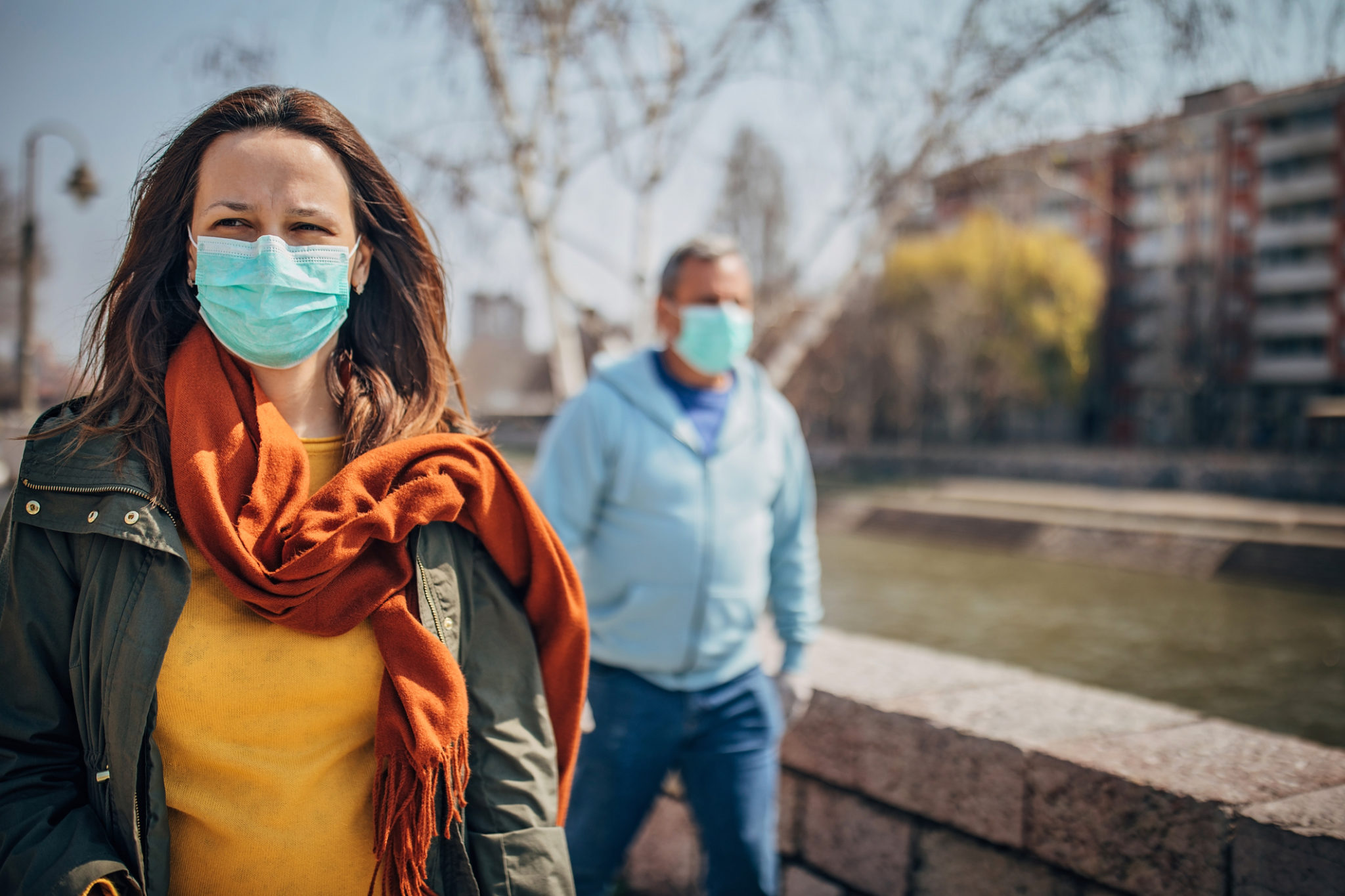Do Masks Really Work?

August 24, 2020
It seems that masks are here to stay as a part of our everyday lives, as cases of COVID-19 continue to rise across the globe.
Many states are now making it mandatory for all people to wear a cloth face mask when in public settings and when around people who aren’t in the same household. Recently, the World Health Organization (WHO) revised its guidelines suggesting that cloth face coverings now be worn by everyone who comes in close contact with others in crowded or close quarters where social distancing cannot be maintained.
Some domestic and international studies have shown that wearing a mask can help contain large respiratory droplets containing the virus from traveling through the air. Since many cases of COVID-19 occur without symptoms, it’s critical that everyone wear a mask in public so that all are protected.
Do Masks Stop COVID-19?
Yes – there are two ways that masks can help stop COVID-19. They are:
Reducing airborne respiratory droplets
Cloth face masks can act as an extra layer of protection on top of all the other safety measures we take like social distancing, frequent handwashing and cleaning. If everyone in a public setting is wearing a well-fitting, well-made mask, it can provide an extra level of safety since viral particles will largely be contained in each person’s mask.
By everyone doing their part and wearing a mask, it can significantly decrease the amount of respiratory droplets in the air which can limit the spread of COVID-19, even if you don’t know that you have it.
Creating a physical barrier
An N95 mask is a type of respirator that is rated to block up to 95% of small particles in the air, including COVID-19 viral particles. The materials and fit of this mask provide a physical barrier that traps the viral particles on the outside of the mask.
According to a Stanford study, a home-made cloth mask can function as well or better than a surgical mask when constructed properly with high-quality materials. They, and now the WHO, recommend a cloth mask with at least three layers of different materials.
The outermost later should be made of a fabric that is somewhat water resistant like a polyester/cotton or nylon blend.
The middle layer should be a spun material like vacuum cleaner bags or 3-ply disposable tissues.
The inner layer should consist of a wicking material to draw moisture from the face. Old gym attire or 100 percent cotton t-shirts are a great choice.
What are the differences between a surgical mask and a cloth mask?
If you’re getting care at a hospital or doctor’s office, you may notice different types of masks and have questions about what they’re used for.

Next Steps and Resources:
- To make an appointment with a doctor near you, call 800-822-8905 or visit our website.
The material provided through HealthU is intended to be used as general information only and should not replace the advice of your physician. Always consult your physician for individual care.
Find a doctor near me
How to Properly Wear a Facemask

Learn proper facemask use. Protect yourself and others. Simple instructions for wearing, cleaning, and preventing fogging. Improve your safety today.
Can You Get Coronavirus From Packages and Mail?

Coronavirus from packages? Dr. Frank explains low transmission risk. Learn safe handling steps & protect your family. Call 800-822-8905.
Find a doctor near me

Should Kids Still Wear Masks?
Should Kids Still Wear Masks? Dr. Bal offers guidance on mask-wearing for children. Learn how to protect your child. Get expert advice now.

6 Tips to Wash Your Hands the ‘Right’ Way
Learn proper handwashing techniques. Six simple steps for clean hands. Improve hygiene now.

Answered: 5 Questions about Face Masks
Learn about face masks from a medical expert. Get answers to key questions regarding mask types and proper usage for better protection.

Everything You Should Know About New Mask Guidelines
Wearing a mask, along with other practices like social distancing, helps to slow the spread of COVID-19. Just as important as remembering your mask, though, is wearing and choosing an appropriate one.
